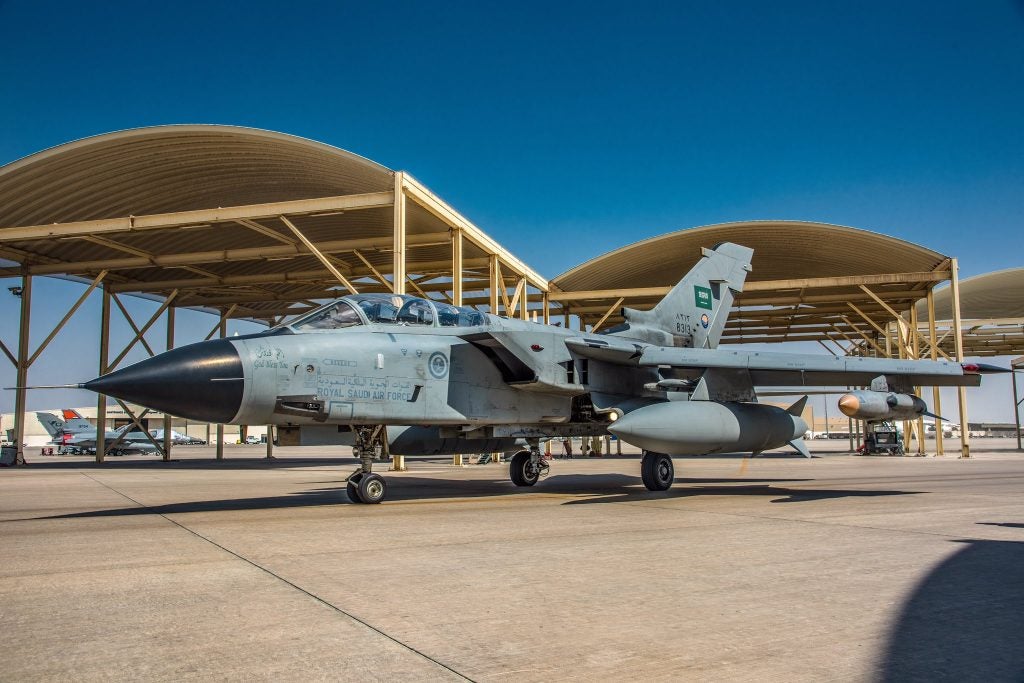Saudi Tornado Crashes In Yemen
On 14 February, a Panavia Tornado operated by the Royal Saudi Air Force crashed while on a close air support mission over al-Jawf Governorate in the north of Yemen. The crash occurred during intensified combat in the governorate between Houthi fighters and militias loyal to the regime.
The crash was initially reported by pro-Houthi media outlets, claiming that it had been shot down with an advanced surface-to-air missile. Footage purportedly of the shootdown was then uploaded to social media. The shootdown was later confirmed by the Saudi-led coalition, although the coalition did not state any reason for the crash.
A later statement from the coalition stated that the crew of the Tornado were able to successfully eject from the stricken aircraft. However, the fate of the crew remains unknown. The coalition has accused Houthi fighters of violating international humanitarian laws by firing on the crew, and “the lives and wellbeing of the air crew is the responsibility of the terrorist Houthi militia“. Some pro-Houthi news outlets have claimed that the crew has been captured.
The United Nations Humanitarian Coordinator in Yemen has stated that airstrikes in the al-Hayjah area of the governorate around the time of the crash killed 31 civilians of the Bani Nawf tribe and injured 12 others. The exact circumstances of the airstrikes remains uncertain. The coalition has described it as possibly being “collateral damage“, while Houthi propagandists claim that the strikes were “retribution” for the crash. The coalition has entered arbitration with the tribe following the airstrikes, in which they offer a formal apology and seek to make amends.
The crash follows mounting evidence of increasingly advanced foreign weapons being operated by the Houthis. These weapons, which include unmanned aerial vehicles, ballistic missiles and surface-to-air missiles, are believed to have been supplied by Iran alongside advisors from the IRGC. While the Houthis have used weapons taken from pre-war Yemeni Army stocks, smuggled weapons interdicted by the coalition and the US have given credence to the belief.
The coalition staged a military intervention in 2015, nominally to restore the government of President Abdrabbuh Mansur Hadi, which was overthrown by the Houthis. The coalition has drawn international condemnation over high civilian casualties, as well as questionable commitment to decisively ending the conflict. This criticism, while warranted, has allowed Houthi actions to go undetected and uncriticized outside of Yemen, such as extortion of international NGOs and blocking or misappropriation of aid intended to relieve the humanitarian situation in Yemen.

